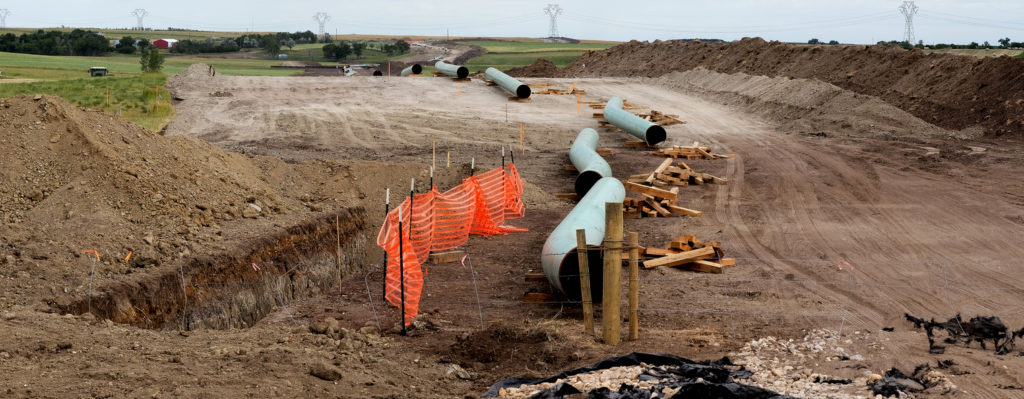Originally published at MintPress News.
AUSTIN, Texas — The Dakota Access pipeline is just one of several major fossil fuel projects underway as part of U.S. efforts to dominate the global energy market and crash the oil-dependent economies of American nemeses like Venezuela and Russia.
On Monday, a federal charge officially halted construction around Lake Oahe, the site of a massive protest against the Dakota Access pipeline led by the Standing Rock Sioux, who have been joined by hundreds of other Native American tribes and indigenous groups.
Elsewhere, however, expansion of U.S. fossil fuel infrastructure continues.
Winona LaDuke, a respected Native American activist and executive director of Honor The Earth, put the Dakota Access pipeline and others like it into international perspective during a July 12 interview with Democracy Now!. LaDuke explained:
[I]t also has to do with crushing Venezuela, because Venezuela has the largest oil reserves in the world. And rather than do business with Venezuela, they were bound and determined to take oil from places that did not want to give it up, and create this filthy infrastructure.

In order to reduce its dependence on South American and Middle Eastern oil, the United States is turning to domestic energy sources that are especially toxic to the environment. LaDuke continued:
So, this carbon—this oil is very heavy in carbon and will add hundreds of millions of tons of CO2 to the environment, if these pipelines are allowed through. So, that is—you know, it affects everybody.
A recent gas pipeline rupture in Alabama brought into sharp relief the threats the Dakota Access pipeline and many similar projects pose for crucial waterways and vulnerable ecosystems. In January, the North Dakota Public Service Commission, with approval from area tribes, granted permits to Sacagawea Pipeline Co. to build a crude oil pipeline that crosses Lake Sakakawea, an important reservoir in the state.
The Sacagawea pipeline would transport 140,000 barrels of oil per day to a railway line owned by Phillips 66. In addition to pipelines, oil trains are also a major source of concern for environmental safety activists due to their potential for devastating and explosive derailments.
On Sept. 6, the Lebanon Hills pipeline received final approval for construction to begin in Dakota County, Minnesota, south of Minneapolis and St. Paul. Operated by the Northern Natural Gas company, this pipeline will supply fuel to the Xcel Black Dog Power Plant in Burnsville, Minnesota, a coal-burning power plant that’s in the process of being converted to natural gas.
Bad news. While we're focused on the #DakotaPipeline, another pipeline got the go-ahead. #KeepItInTheGround pic.twitter.com/X1DMpWESij
— act.tv (@actdottv) September 13, 2016
But the pipeline’s path runs across some of the region’s most delicate wetlands. “As planned, it will cut through Lebanon Hills Regional Park’s ‘preserve zone’ — an area of high ecological diversity — and affect more than 400 landowners,” wrote Emma Nelson, a reporter for the Star Tribune, on Sept. 10.
The Sabal Trail Pipeline, a joint project of Spectra Energy Corp, NextEra Energy, Inc., and Duke Energy, is also sparking outcry from concerned residents and environmental justice activists. Critics say the project, described as a Southeast “gas highway,” will have the most adverse effects on low-income, minority neighborhoods, including high degrees of displacement. In October 2015, four congressmen from Georgia wrote a joint letter to the Federal Energy Regulatory Commission expressing their concerns. It reads in part:
Sabal Trail’s proposed route will go through Albany and Dougherty County and will run through low-income African-American neighborhoods. The proposed industrial compressor station facility would sit right in the middle of an African-American residential neighborhood comprised of two large subdivisions, a mobile home park, schools, recreational facilities, and the 5,000-plus member Mount Zion Baptist Church, a predominantly African-American congregation.
And in Texas, the Trans-Pecos pipeline, another project of Energy Transfer Partners, the builder behind the Dakota Access pipeline, threatens the land of dozens of ranchers, the iconic and mysterious Marfa Lights, and some of West Texas’ last untouched wilderness in the course of carrying natural gas to Mexico.
By flooding markets with cheap oil and gas from sources like fracking, the United States has helped send global oil prices plummeting. This, in turn, has contributed to Venezuela’s economic crisis and poor economic indicators in Russia.
Political analyst Caleb Maupin, writing in July for MintPress News, argued that the United States is waging a kind of “economic war” on its oil-rich enemies.
“While American media insists the low oil prices are just the natural cycle of the market at work, it’s rather convenient for U.S. foreign policy,” he wrote. “Russia, Venezuela, Ecuador, and the Islamic Republic of Iran all have economies centered around state-owned oil companies and oil exports, and each of these countries has suffered the sting of low oil prices.”